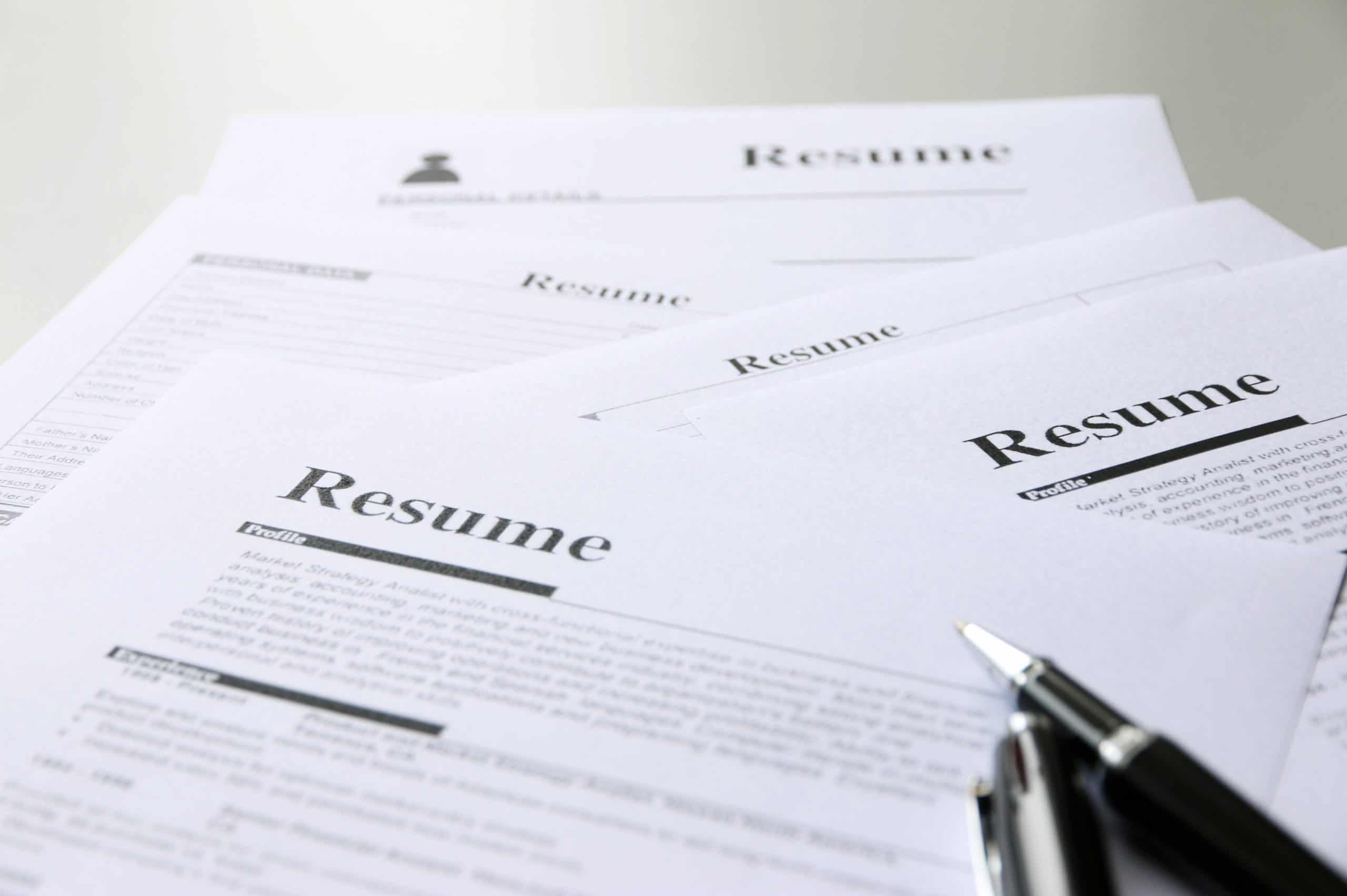How to write a resume to get your first job
AJ Williams-Tchen
- Career & Business

AJ is a proud Wiradjuri / Wotjobulak man. He is the Founder and Director of Girraway Ganyi Consultancy.
If you’re looking to get your first job, or starting a new career after studying, the first step is to come up with a good resume to sell yourself.
Where do you start and what do you need to consider to make yourself an ideal applicant for an interview?
Let me share some tips of writing a CV or resume – the document that will show off your professional and personal experience.
Writing a CV
CV writing can be a bit scary.
You may ask: What do I want people to know about me? How much do I need to tell them? How can I make an impact?
There is no one simple answer.
The important question to ask yourself is – if I was an employer, what would I want to know about this applicant, and how does this applicant match what we may be looking for?
Think of your CV as your entry point. It is your personal pitch at making the organisation want to interview you.
It may be easiest to break it down into sections.
Contact information
To start, list all your contact details.
This includes your full name, phone number, an appropriate email address, home address and your LinkedIn profile link if you have one. You don’t need to make headings for these things – simply list them at the top of the page. You don’t need to list your date of birth, age or gender.
You don’t have to say that you are Aboriginal or Torres Strait Islander. I would only do this, if I was applying for an Indigenous-specific position, or within an Aboriginal or Torres Strait Islander organisation. You also do not need to add a picture. Something as simple as this will work:
Curriculum Vitae
Jason A Johnston
16 Albert Drive Richmond 3121
jasonajohnston@bigpond.com.au
A summary of you
Next, write a short, 50-100 word professional profile or career summary. This is where you need to introduce and sell yourself to the place you are applying to. You should highlight what you can offer. It doesn’t need to be too fancy, but something that explains what you can bring to this position.
It is important to make sure that this section reflects the position that you are applying for. This means that it may need to be changed slightly for every job that you apply for.
Even if it is your first job– don’t worry. State that you are interested in working in the selected area, mention what your current qualifications or skills are and how you would be able to fit into the team.
Qualifications
In the next part, list your qualifications. It is important to have the year you got that qualification. Underneath the qualification list the school / TAFE / University where you gained that qualification.
Experience
The next section is any experiences that you may have. Put under the heading of Professional Experiences.
In this section, put in any previous jobs that you have had, any volunteer work, or work experience activities. When listing jobs, include:
- position or title
- employer name
- dates you were employed
Then provide a two or three point summary of your responsibilities. You could easily also list these as achievements. List the most recent first.
Skills
The next section is about any skills and attributes that you have that are relevant to the position that you are applying for. A good tip for this section is to look at the job ad or position description and include some of these words or phrases.
Hobbies and interests
An optional section may be about your interests and hobbies. This may or may not be relevant, depending on where you are applying to.
For example, in a health or wellbeing industry, you may say you like walking.
However, this may not fit in other industries. It’s OK to leave it out.
Referees
The last section is where you list your referees. These are people who can talk about why you would be suitable for the role, based on past experience working with you.
Ring them first. Make sure that they are aware that you are applying for a role. Make sure that they also have good things to say about you.
It is important that the people know your skill set and are able to provide examples of what you say you can do. If you are just finishing uni or TAFE, think about any recent field educator or trainer that you may have.
Sometimes people list a teacher from their school. This is ok if you are still at school. However, three or four years later – your teacher can only talk about what they recall of you four years ago – not what you are capable of today.
My top tips
- Use easy to read fonts. Pick one that you like and stick with it throughout. Don’t start mix and matching. Choose a basic font, like Arial or Times New Roman and size it between 10.5 and 12 point.
- Use bullet points to help draw the readers eye to key information.
- Don’t include acronyms or organisation related terms.
- Make sure that your CV is at least one page long, but no longer than three pages.
- Check your spelling. Then check it again.
- Make sure all the grammar is correct. Perhaps even consider having a friend or family member check over it as well.
- Look for keywords in the job description or advertisement, if you have these skills, knowledge or experiences, add them to your CV.
- Make it simple and easy to read.
- Keep it simple and straightforward.
- Use active language throughout the CV. Words like ‘achieved’, ‘earned’, ‘awarded’ and ‘completed’ show that you can demonstrate an outcome of your claims.
- Only include subheadings and sections that you need.
- Choose an appropriate margin size & spacing.
- Try not to make the personalisation look too obvious. It should never be a direct copy-and-paste.
- Always be truthful. If you don’t have a particular skill or attribute, don’t list it.
- Read over your CV. It should now reflect the skills, experience and values that the hiring manager is looking for.
Good luck!
AJ Williams-Tchen is a Wiradjuri /Wotjobulak career counsellor, social worker, nurse and youth worker.
Let us know if you liked this article
Let us know if you liked this article




